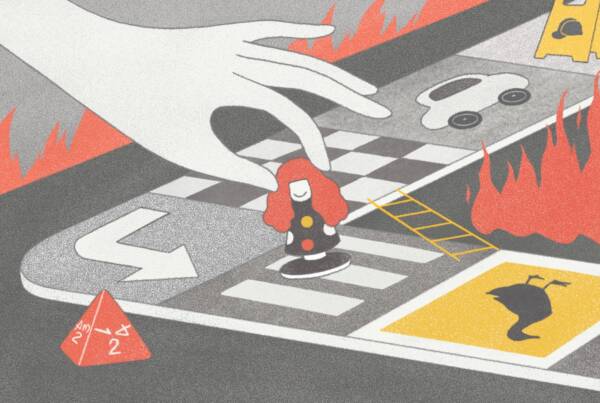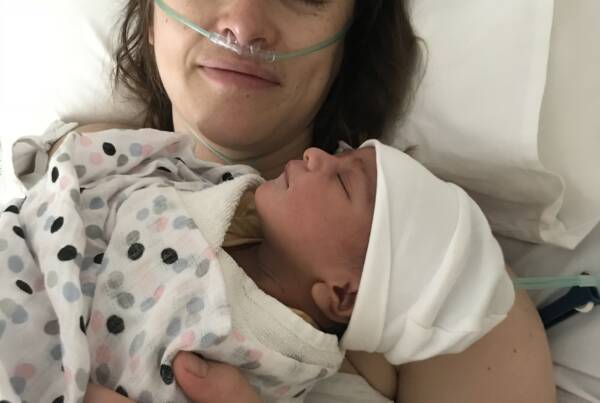Writing by Ferris Knight // Photograph by Liat Meir // By not loving my body, I am not fat-hating, I am self-hating. I wish I could be happy at whatever size, whether that be fat or thin or anything in between.
Writing by Ferris Knight // Photograph by Liat Meir
CW: eating disorder, drug mention
This seems like a dirty thing to say these days, but I am a feminist and I do not love my body. I cannot deny it or pretend otherwise. More so, I won’t deny it or pretend for the sake of feeling like a ‘good’ feminist.
It’s late at night and I cannot stand to be in my own skin. My body started breaking years ago, with various names given to the pain I feel in my muscles, joints, nerves, stomach, head, and chest. My agitation turns into shaking and I struggle to catch my breath. After years of seeking support I feel hopeless. I look to the internet for something, anything. It suggests things such as taking a bath to soothe myself. This feels impossible—at least in a shower I keep my head up so I can’t carelessly look at myself, one of the things that triggers thoughts I do not have the strength left to fight anymore.
Ironically, as to punish my body for not functioning I deprive it. It won’t help the situation, and I know this logically but I also know nothing else. It’s hard to nourish or take care of myself when I know that I still won’t feel better. I don’t know how I am surviving while I’m this sick, and yet I don’t know how to do it without making myself sicker.
All the pieces were in place to raise a child without body issues. I was never taught about weight or food nutrition. Food was just food. Spaghetti bolognese was delicious and steamed potatoes were gross, and we had this thing in my family called ‘lolly of the week’. Simply put, when dad was grocery shopping, my younger brother and I could pick one thing from the confectionery aisle. ‘Lolly of the week’ was never about sugar or calories or fat, merely a way to shut us up while dad was shopping. We never had scales in the house, and my mother didn’t pour over magazines or say she wished she looked like some celebrity, or any other things considered triggering environments. I was never called fat, and I never had any negative associations with those who were. Sports were for fun and to build skills rather than burn calories or work on fitness. My weight or how I looked never came into account—I hated my hair and its tight curls and the way my cheeks turned bright red over anything, but that was about it.
At fourteen years old a psychiatrist first confronted me about my eating issues. I’d started seeing him eighteen months earlier, struggling with self-harm. In the middle of an appointment he asked me if I was eating enough. He pointed out that I’d lost a considerable amount of weight since my hospital admission three months earlier. He told me that if I didn’t gain the weight back, he’d admit me for anorexia and put a nasogastric tube down my throat.
I didn’t think I was that thin, and even today I think that it was a scare tactic. Or perhaps this, in itself, is a symptom. I never knew what weight I dropped to, only an approximation based on the weight when I was admitted for an overdose in the next week, taken because I couldn’t handle the idea of being force-fed. I couldn’t cope with the idea of food anymore—it was all too hard and too messy. I took up too much room in life and couldn’t stand to do so anymore. I couldn’t cope with the idea they’d stop my slow suicide.
By this stage I’d had issues with food for nearly a decade, but never to this extreme. The less I ate, the more I thought about food. Initially, I was rewarded with positive encouragement, really the only positivity I had since I couldn’t give any to myself. For the first time in my life food was linked to weight, which was labelled as good or bad. And I so desperately wanted to stop being bad. I finally had a direction for my self-hatred, a false promise that I wouldn’t hate myself anymore.
Even though I was trying to slowly kill myself, when I look back I ironically remember myself being happy for the first time in a long time, because I finally had a new way to cope. Three days after my overdose I was discharged on the condition I’d attend a group program for a term and eat pizza. During that admission, a girl who’d been there with me before and noticed my weight loss taught me to purge, morphing my issues.
Numerous eating disorder labels would be thrown at me over the years, and right now I don’t have one attached due to a lack of psychiatric support in general. I wonder if they would since I don’t ‘look sick’, and if pleading with them for assistance this time would actually amount to something. There seems to be a harsh lack of resources in Australia for those with eating disorders, reflected by the Fed Up Campaign and The Butterfly Foundation’s funding cuts.
Later in my teens, I spent some time seeking support. I asked to be admitted for bulimia when I was 16. Instead, I found an oasis where they wouldn’t make me eat and I had access to an exercise bike. My eating was initially disregarded, and instead I was put on antidepressants that sent me manic.
The culture around me has changed since my first diagnosis. When I first got sick, foods were labelled as being ‘too fatty’ or having too many calories. Fashion shows were not yet being called out on hiring models with anorexia, and ‘thinspiration’ was almost like a cult online. Now it’s all about ‘clean eating’ and ‘fitspiration’—itself a potential veil or trigger for orthorexia. If I eat perfectly, not only will I be perfect, but I will be healthy while doing so, so long as I don’t end up malnourished. All these images on Facebook and Instagram scream health while ignoring dieticians.
Later in high school, I discovered feminism. It seemed perfect, incredible, until I learnt more and got stuck in the mud. Ideas of equality and fairness aligned with how I thought the world should be. But it conflicted with my perception of myself and confused me. I didn’t know where my voice belonged, if at all, particularly with the self-love movement gaining considerable traction. Sometimes the lines are blurred between body positivity and fitspiration. Loving your body is fantastic, and I will never say otherwise, but little airtime is given to those who struggle to love their bodies due to illnesses of either body or mind. I’m not trying to add to the fat-shaming or thin-shaming debate, I simply want to call out the fact that we have little room for people to exist in this space while they aren’t able to participate.
Perhaps there’s a perception of judgement; if I hate myself and I am size x, don’t I think you hate yourself if you’re size y? Absolutely not. My self-hatred turns to jealousy seeing someone else carelessly eating, wearing something that is flattering for them or comfortable, or even just carelessly existing.
Today I am struggling, as I have for most of the past two decades. I imagined my life to be so much more than this. I may never love myself. No matter how many positive memes I see shared, I cannot look at myself and feel even okay. Whether in the mirror, looking down or closing my eyes. This isn’t a problem cute pictures will solve—this is a problem that, for me, probably requires therapeutic and medical intervention.
By not loving my body, I am not fat-hating, I am self-hating. I wish I could be happy at whatever size, whether that be fat or thin or anything in between. Body positivity campaigns such as this one have an important place in helping to minimise the amount of people who will associate thinness with self-esteem, that will help the next generation to not look at themselves the way I look at myself.
You are not a bad feminist if you cannot love yourself yet. You are only a bad feminist if you cannot open your heart to others struggles and try and support and appreciate everyone. Just like recovery, wake up each day and try again. And one day you will find your voice, and hopefully love for yourself.







